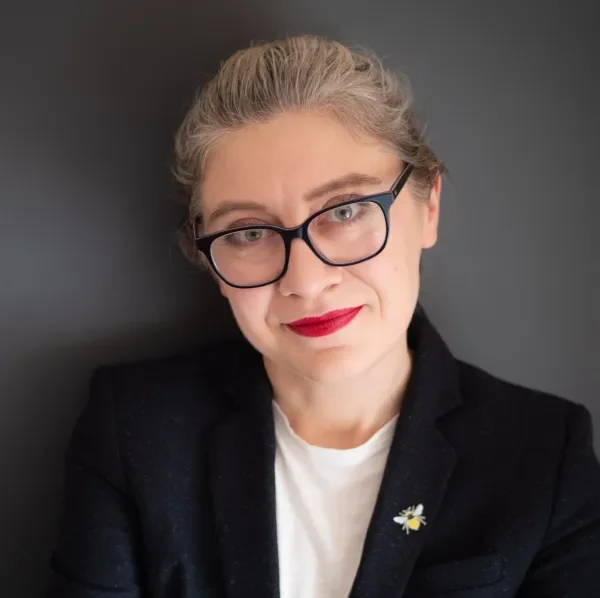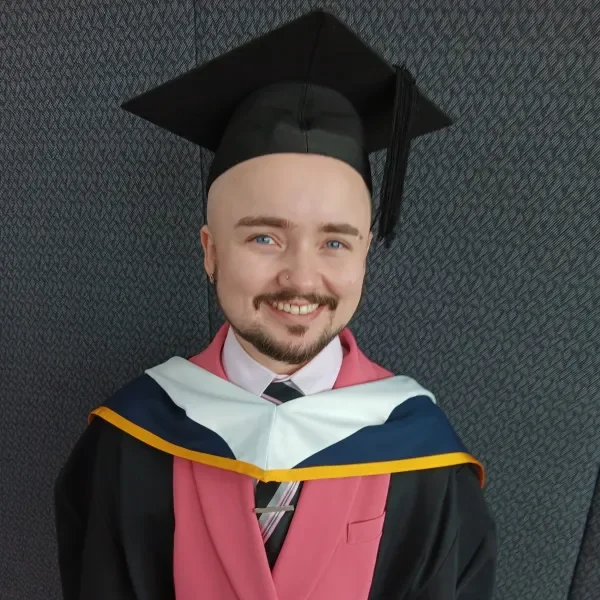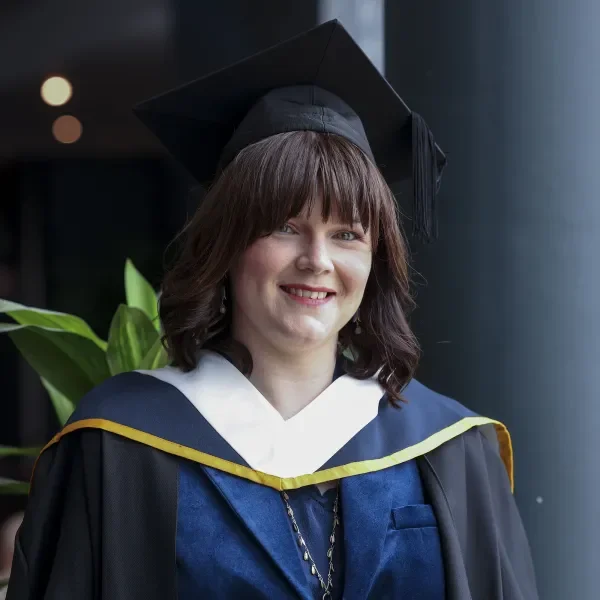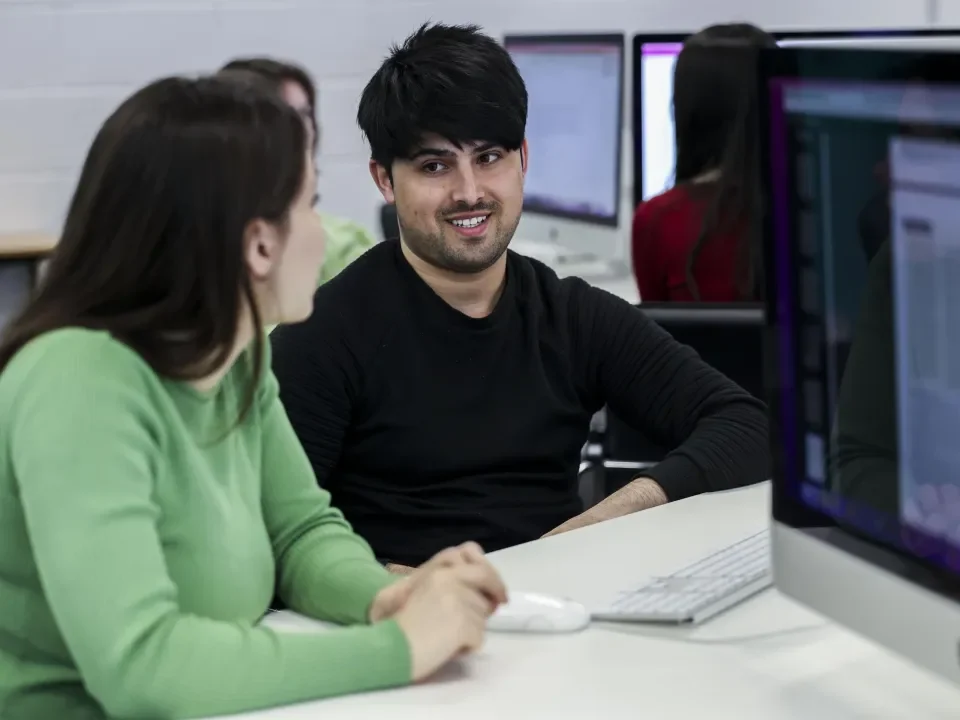Overview
Digital media and networked technologies have transformed the ways we share and distribute information, understand the past, participate in politics and interact with each other. The MA in Social Media Communications examines the complex impact of social media and the internet on multiple aspects of social and political life. These questions are vital as digital media have become more central to communication and information ecosystems, as well as our everyday existence.
The digital world has changed the terms of engagement in areas as diverse as business, politics and culture: while it can act as a force for good in democratising participation, cultural production, and sharing, it can also be exploitative, introducing new forms of control and surveillance.
The MA in Social Media Communications addresses the way in which social media and connected technologies pervade all aspects of our personal lives, habits and identities, the way in which we relate to and coexist with other people, and the way in which we work and do business. It also reflects on the power hierarchies and tensions that result from the ongoing engagement with these networks by politicians, journalists, platform owners and the public.
Why DCU
DCU People

I am Associate Professor in Digital Media and Society at the School of Communications and Programme Chair of the MA in Social Media Communications, Dublin City University.
Read more about Dr. Tanya Lokot

With a professional background in social media management, I chose the MA in Social Media Communications to gain both practical skills and a deeper knowledge of the digital environm
Read more about Benjamin Foley

From a young age, Erin, from Co. Sligo, wanted to be a journalist. She was diagnosed with hearing loss at the age of nine and used hearing aids, but Erin didn’t see this as an obstacle.
Read more about Erin Fox
Careers & Further Options
Careers
Graduates of this program can be confident of job opportunities and employment in various media-related sectors or communication roles in other industries. They can also expand their career prospects in their current field. This programme is valuable for individuals wanting to update their skills, specialise in the field of communication, or transition into more socially and communicatively focused roles.
Additionally, the MA in Social Media Communications provides an excellent route for further academic progression and a research-focused career.
"DCU graduates are highly sought after by employers. Our Graduates work in environments ranging from large multinationals to SMEs, family businesses and start-ups across every sector.
DCU Careers Service has a number of learning and development initiatives in place for our students, giving them the skills they need for a successful career path."
Entry Requirements
For admission to the MA in Social Media Communications programme, successful applicants will have:
• A degree at the level of an Irish or UK Honours undergraduate degree (H2.2 or above) or equivalent,
• Applicants with appropriate combinations of professional qualifications and experience may also be considered. This includes discipline-specific knowledge and know-how; transferable skills; basic research competency; personal effectiveness.
• Recognition of Prior Learning (RPL) applicants are required to submit a cover letter along with their application under the Transcripts section of the portal, affirming their intent to apply for RPL. For more information on RPL see here.
• International candidates who are non-native speakers of English must satisfy the University of their competency in the English language.
Programme Structure
Programme Aims
- To introduce students to theories, critical concepts and methods relating to digital media research.
- To investigate and relate institutional, technical and social factors shaping social media practices.
- To critically examine social media practices by a variety of actors, including politicians, businesses, journalists and the general public.
- To analyse the impact of social media in politics, socio-cultural and economic life.
- To enable students to develop effective social media research and communication strategies.
This programme is designed for individuals seeking a thoughtful and critical understanding of social media, along with the skills to analyse and strategically harness them. The main focus of this course is to help students acquire a social science-based understanding and tools for analysing how social media platforms have developed, the power they wield, and how they operate and are governed in our globally networked society.
The MA in Social Media Communications combines theory and reflection with practical skills and policy insights. It provides you with a wide skill set of cutting-edge digital tools, policy instruments, and qualitative research methods that enable you to pursue a career in digital social research, digital policy-making and governance, or a variety of digital media industries.
Full time programme
Semester 1: Core modules
- Understanding Social Media 10 credits
- Social Media, Journalism and Democracy 10 credits
- Digital Media Campaigns 5 credits
- Research Methods 5 credits
Semester 2: Core modules
- NEW in 2025! Digital Governance and Online Media Regulation 5 credits
- Digital Media Research: Approaches and Methods 10 credits
- Data Communication 10 credits
Semester 2: Optional modules - students choose one of the following modules
- Information, Manipulation and Democracy 5 credits
- Gender and Sexuality in Digital Culture 5 credits
- Media Audiences and Consumption 5 credits
- Public Relations: Issues and Principles 5 credits
Year Long
- Dissertation / Major Project 30 credits
Part time programme
YEAR ONE
Semester 1: Core modules
- Understanding Social Media 10 credits
- Social Media, Journalism and Democracy 10 credits
Semester 2: Core modules
- NEW in 2025! Digital Governance and Online Media Regulation 5 credits
- Digital Media Research: Approaches and Methods 10 credits
Semester 2: Optional modules - students choose one of the following modules
- Information, Manipulation and Democracy 5 credits
- Gender and Sexuality in Digital Culture 5 credits
- Media Audiences and Consumption 5 credits
- Public Relations: Issues and Principles 5 credits
YEAR TWO
Semester 1: Core modules
- Digital Media Campaigns 5 credits
- Research Methods 5 credits
Semester 2: Core modules
- Data Communication 10 credits
Year Long
- Dissertation / Major Project 30 credits
DCU's strong track record in communication studies and digital media research ensures that this course is taught by experienced experts who have a deep knowledge of important subjects.
The DCU School of Communications has been the primary institution offering media and communications courses in Ireland for nearly 30 years. We are at the forefront of developing education in areas such as communications, journalism and multimedia. Our expertise comes from extensive research and partnerships with other universities and global networks.
The School of Communications at DCU is ranked in the top 200 globally for Communication and Media Studies.
The School has strong connections with media organisations and industry bodies in Ireland, which helps ensure that our programmes stay current and aligned with industry needs.
This programme will open doors to further postgraduate studies in digital communications and media research, internet policy, digital culture and technology and society studies.
Fees and Funding
Fees
How To Apply
To apply for this programme:
All Applicants must apply through DCU's Student Application Portal which is available here. Here's a quick step by step guide if you need help with your application:
• Provide Academic Transcripts for each and every year of study with English translation if applicable.
• If applicable, provide evidence of competence in the English language as per DCU entry requirements. Please see link https://www.dcu.ie/registry/english.shtml
Please note if you are a non EU student and require a study visa, you are not eligible to apply for part-time programmes as study visas are only granted for full-time programmes.
Application Deadlines
Applications will be accepted on a rolling basis until the programme is full or until the following dates:
- Closing date for Non EU applicants is 1st July 2025
- Closing date for EU applicants is 30th August 2025
Note applicants who require a study visa for the purposes of studying at DCU, are advised to apply as early as possible.
All entry requirements should be met before the commencement of the programme.
Application Queries
For EU applicant queries, please visit https://www.dcu.ie/registry/eu-postgraduate-taught-admissions or email postgraduateadmissions@dcu.ie
For non EU applicant queries, please visit https://www.dcu.ie/registry/international-admissions-undergraduate-and-postgraduate or email internationaladmissions@dcu.ie
Commencement of Programme
The programme commences in September 2025
Life On Campus
At DCU, our students can expect a unique campus experience. We are known for our excellent teaching and learning facilities, our active clubs and societies, and our great social and sporting facilities. All this makes DCU an exciting place to be.
DCU has three academic campuses; Glasnevin, St. Patrick’s and All Hallows (both in Drumcondra), all close to Dublin City centre.
They can be reached by public transport, Dublin Bus and Bus Éireann, with our Drumcondra campuses a ten minute walk from Drumcondra Train Station. Glasnevin is a 20 minute walk from St Patrick’s and All Hallows. They are also linked by Dublin Bus.
Each campus has a library (O’Reilly, Cregan and Woodlock Hall), study spaces, restaurants, and on-campus residencies. There are sports facilities on Glasnevin and St. Patrick’s, and there is a dedicated sports campus, St Claire’s, located near Glasnevin on the Ballymun Road.
DCU’s 19,000 students have access to exceptional teaching and learning facilities across our three academic campuses.
These include modern learning theatres, research centres, a new media and TV studio, radio/podcast studios, computer suites and advanced labs in the areas of Languages, Engineering, Physics, Chemistry and Biotechnology, as well as a Sports Performance centre and a training hospital ward. In 2021, we opened our first virtual reality ‘Leadership Lab’, which is located in our Business School.
We continue to improve and update our facilities. For example, construction of a new world-class STEM facility is underway on the Glasnevin campus. With capacity for an extra 3,000 STEM students, this facility will advance DCU’s international reputation for excellence in science and health, computing and engineering disciplines.
Studying in DCU isn’t just about course work. The university is rich in student life and activities.
There are more than 140 clubs and societies for students in DCU, with ‘Clubs & Socs’ days taking place on both the Glasnevin and Drumcondra campuses at the start of the academic year. They span everything from rugby to rock climbing, anime to jazz.
For many students, sport is an important part of the DCU experience. DCU’s Sports Complex boasts a 25 metre swimming pool, fitness centre gym, all-weather pitches and squash courts, as well as soccer, GAA and rugby pitches. DCU Dóchas Éireann, the university’s GAA club, is the largest third level Gaelic Games club in the country. Meanwhile, DCU Athletics has been Ireland’s highest achieving university club for many years. And DCU has dozens of other clubs to get involved in, from Archery to Weightlifting.
The Glasnevin campus is home to our purpose built, state-of-the-art student centre, The U, which serves the needs of a rapidly growing student body. Here, you will find the Student Leadership and Lifeskills Centre, performing arts and cultural spaces for students and the wider community, and the Entrepreneurship and Innovation Hub. Also located on our Glasnevin campus is The Helix, our renowned performing arts centre.
On our St Patrick’s campus, we have the Java Student Hub, a vibrant, warm and welcoming space where students can meet for coffee, play music, use the projector to watch events, or just relax. The walls of the Java Hub were designed based on the cultural history of St Patrick’s Campus, including the special references to the notable sporting history and history of the arts.
We have a number of academic, professional and social supports for students.
Student Advice & Learning Skills Centre - Offers a wide range of supports and services to students and advice
The Writing Centre - drop-in writing workshops for students through the academic year
Maths Learning Centre - provides maths support for students of all ability levels with maths modules
Student Learning - facilitate the transition from passive to active learning for students at DCU, by teaching study skills, nurturing critical thinking and building student confidence.
Careers work with students to help them on their professional journey into graduate employment.
Our student support team offers a comprehensive support programme, helping students make that all important transition into university life and focusing on building confidence and skills which are key to success at third level.

DCU Glasnevin Campus
FAQs
Is DCU all one campus?
DCU is a multi campus university - the Glasnevin, St Patrick's and All Hallows campuses. The St Patrick's campus is where the Education courses are taught and some of the subjects from the BA Joint Honours degree. There is a 20-25 minute walk between the campuses but there are buses and bikes available to go between them also.
Click here to see maps of all of our campuses
If I'm studying on the St Patrick's campus, can I use the library and sports centre on the Glasnevin campus?
Yes, all facilities such as sports and accommodation are open for all DCU students to avail of.
Are there libraries in DCU and if they have wifi and work stations?
We have a brand new state of the art four floor library on our St. Patrick's Campus which complements the existing library on the Glasnevin campus. There is free wifi, work stations as well as desktop computers.
Does DCU provide accommodation?
DCU does have on-campus accommodation for undergraduate and postgraduate students, and you can find out more and apply via the Accommodation Office webpage.







